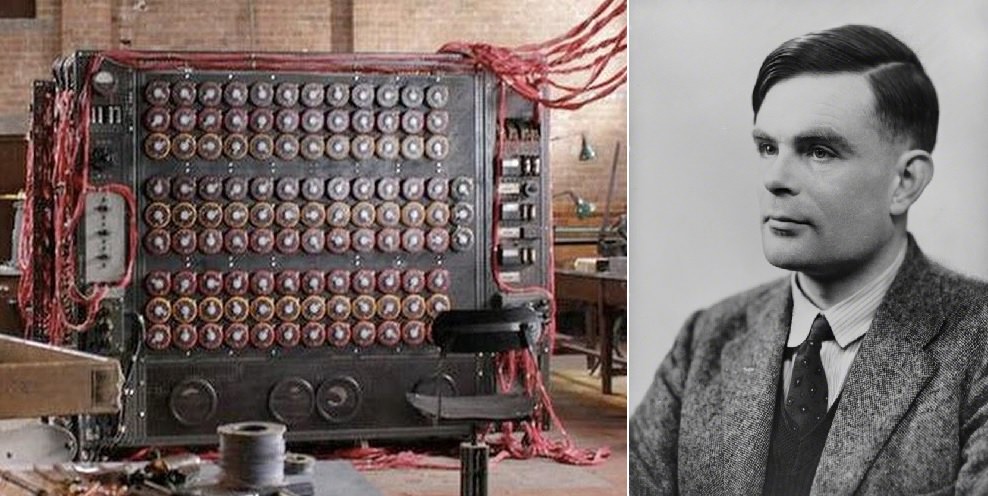
The first electronic digital computers appeared in the 1940s. They were not simply the result of advances in electronics. Their development relied on a theory of computation formulated by English mathematician Alan Turing, who was also an important wartime code-breaker and a pioneer of machine intelligence. Turing imagined an ‘automatic machine’ that could read and write symbols on tape, and carry out tasks based on a simple set of instructions. Turing proved that any problem that is ‘computable’ can be solved by such a machine – a ‘universal’ computer – if given the correct set of instructions.
During the Second World War, Turing worked for the UK government helping to decode the German military forces’ encrypted communications. Turing’s invention greatly helped the war effort, and probably shortened the war by a year or more.


